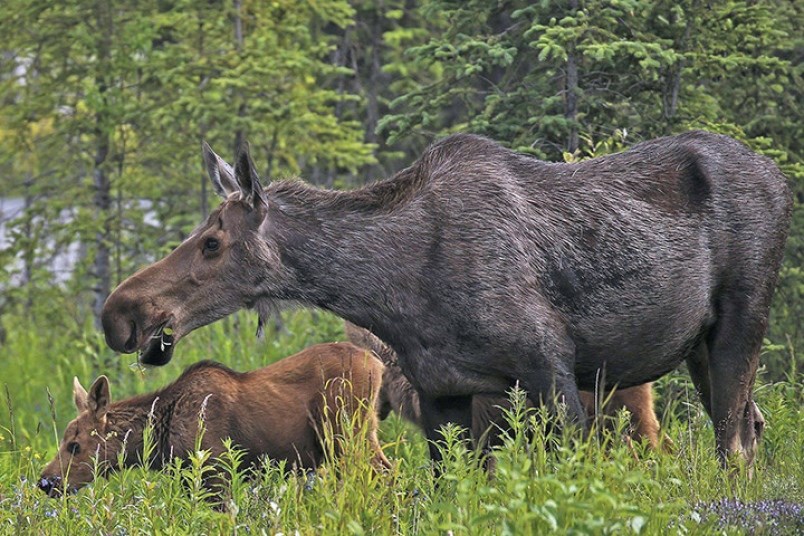McLeod Lake Indian Band (MLIB) is continuing its call for Premier John Horgan to halt the cow-calf moose hunt planned for the fall in its traditional territory.
MLIB is celebrating that after negotiations the number of cow and calf moose allowed to be hunted in their traditional territory has been reduced by 40 per cent, but is calling for a complete halt to the hunt.
The provincial government originally wanted to allow hunting of up to 100 cow and calf moose this season, but MLIB says it was successful in getting that number reduced to 60.
MLIB traditional territory is approximately 108,000 sq. kilometers and includes the basins of the Parsnip, Finley and the southern bank of the Peace Rivers.
The government rationale for the cow and calf moose hunting to aid in caribou recovery - by reducing the number of moose in an area, it will also reduce the number of wolves who hunt moose but also go after caribou as secondary prey.
MLIB has been calling for an end to the hunt since 2017 in favour of a more sustainable and longer-term solution to aid in caribou recovery.
“This practice of hunting-cow calf moose to aid in caribou recovery does not align with our traditional knowledge, cultural practices or traditional laws. It’s not going to help,” said MLIB deputy Chief Jayde Chingee.
She says MLIB is asking the province to continue with wolf culls and to look towards more meaningful measures for caribou recovery like habitat restoration and management and examining how glyphosate usage impacts caribou foraging.
“In our community we are loggers but forestry and logging takes away caribou habitat and ultimately moose habitat so we need to focus on that and see where we can benefit ungulates here,” said Chingee.
“They are super important to our nation as they are a traditional food and have been in our territory from time in memorial. I hear stories from Elders who would see huge packs of caribou and elk and large numbers of moose in our territory and it’s just not the same anymore.”
The province has signed an agreement with Saulteau and West Moberly First Nations in 2020 to protect southern mountain caribou in northeastern B.C. which did not involve MLIB.
Chingee says MLIB has written to the premier and multiple ministers, but negotiations at the government-to-government level have not been handled properly and the nation and the province have not been able to come to an agreement.
“They’ve signed a tripartite caribou agreement without us and we were not included in that process. We are looking to create our own agreement now with the province,” said Chingee.
“The cow-calf moose hunt it is detrimental on the moose population and it is certainly not helping caribou populations and I think overall we need an amalgamation of Indigenous knowledge and western science,” added Chingee.
In 2019, estimated 73 moose cows and calves were harvested within the Parsnip and Revelstoke caribou recovery areas and a further six outside of them and 44 antlerless moose were harvested in the Parsnip Caribou Recovery Area in 2020.
Guide Outfitters of B.C. have also long been opponents of the hunt and hunts of antlerless ungulates in general and in June 2020, Central B.C. Liberal MLAs John Rustad and Donna Barnett issued a statement opposing the hunt which has been in place since 2004.
“Indigenous communities are building ourselves back up and we are standing up our laws and we really need the support of government,” said Chingee.
“When we are holding up our Indigenous laws saying we don’t shoot cow and calf moose, we need them beside us supporting us in this and supporting us in finding better measures for recovery and retention of caribou.”
The Ministry of Forests, Lands, and Natural Resources Operations and Rural development (FLNROD) states “the limited entry hunt (LEH) authorizations for antlerless moose that exist are concentrated in areas where they play a small but important role in protecting caribou from extinction.”
FLNROD says the reduction in antlerless moose hunting this year was an interim action, in the recognition of Indigenous Laws prohibiting the harvest of antlerless moose in some of the overlapping areas.
The ministry also adds that the recovery of mountain caribou is a shared priority between the Provincial Government and McLeod Lake Indian Band and that conversations are continuing to improve the use of Indigenous Knowledge and western science to inform actions that support caribou recovery.




